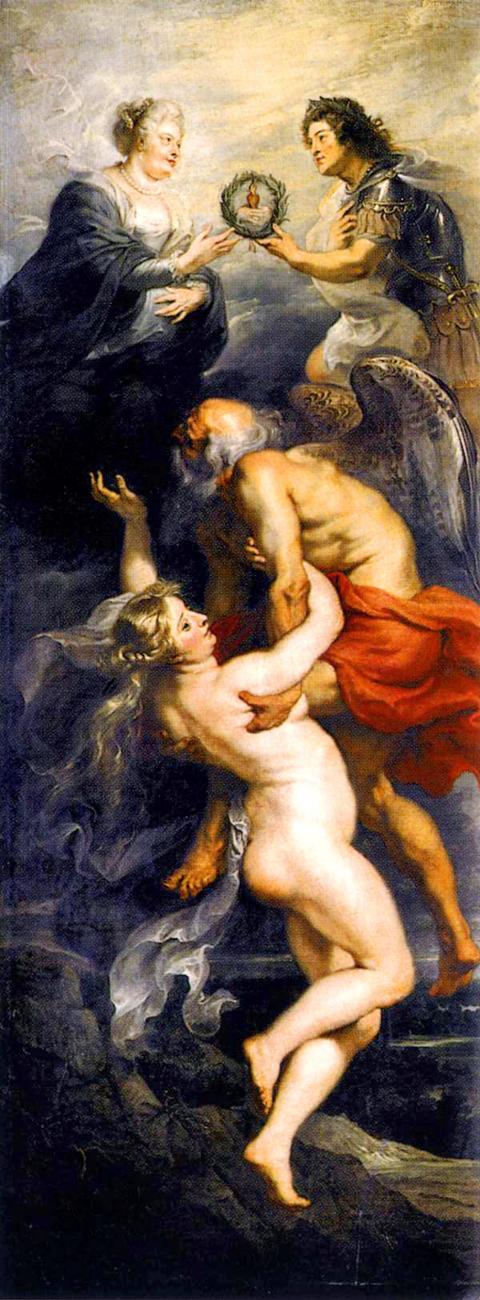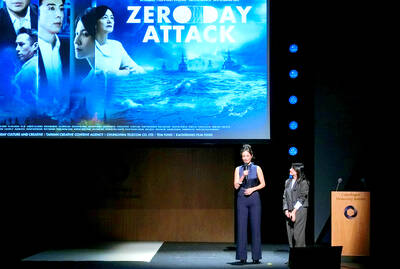Chinese Practice
水落石出
(shui3 luo4 shi2 chu1)

Photo: Wikimedia commons
照片:維基共享資源
as the water recedes, the rocks appear
北宋詩人歐陽修(西元一○○七~一○七二年)筆下的「醉翁亭」,為僧人智仙所築休憩之處,位於今中國安徽省滁縣。歐陽修所寫的〈醉翁亭記〉,便是描寫四季變化的景色──春季野花的幽香,夏季樹木翠綠繁茂成一片濃蔭,秋季風聲蕭瑟、霜色瑩潔;在冬季,水凝成了冰和雪,因此「水落而石出」──水位下降,溪中的石頭故而露出。成語「水落石出」,或源於此。「水落石出」字面意義為水位下降,使原先在水面下的石頭露出,引申為使隱而未顯的真相揭露出來。
北宋詩人及政治家蘇軾(西元一○三七~一一○一年)的〈後赤壁賦〉(西元一○八二年),作於歐陽修死後,文中寫道:「江流有聲,斷岸千尺。山高月小,水落石出。」(河水在千尺高的峭壁間潺潺流過,山巒之高,讓月亮顯得小了,水位降低,讓底下的礁石露了出來。
在當時,「水落石出」一語仍純為描述性的。然而,到了清代,「水落石出」已被當做隱喻來使用,例如劉鶚(西元一八五七~一九○九年)在《老殘遊記》中寫道,「因為你家這十三條命,是個大大的疑案,必須查個水落石出」。
英文中有兩個片語跟「水落石出」所隱喻的意義類似,皆出自英國文豪莎士比亞一五九六年的劇作《威尼斯商人》中的一段對話:「truth will come to light; murder cannot be hid long; a man’s son may, but at the length truth will out」(真相會大白;謀殺隱瞞不了多久;殺人兇手總會被找到)。
此處之意為,如同河底的岩石,即便你可能看不到,但事實總是存在的。隨著時間的推移,遇到了適當的條件,真相一定會被揭露。它可以是一種寬慰──若聽者希望真相大白,或是一種警告──若聽者寧願隱瞞真相。
在現代英語中把「out」一字當做動詞來用或許有些怪,但是現今引用莎士比亞的話說「the truth will out 」,基本上是完全可被允許的。(台北時報林俐凱譯)
他蒙冤死後多年,真相終於水落石出,原來這是一起政治迫害。
(All this time after he was wrongfully killed, the truth has finally come to light. We now know it was political persecution.)
總教練表示,希望在禁藥疑雲水落石出後,外界能重新聚焦在比賽本身。
(The head coach hoped that, after the truth had come out about the doping scandal, everybody would be able to concentrate once again on the actual competition.)
英文練習
the truth will out
The “Old Tippler’s Pavilion,” as the Northern Song Dynasty poet Ouyang Xiu (1007 - 1072) called it, was a structure originally built by a monk named Zhi Xian in Chuzhou, present day Chu County in Anhui Province. Ouyang would later write the Record of the Old Tippler’s Pavilion, in which he waxed lyrical about how the seasons transformed the local landscape. He wrote of how spring brought the wonderful fragrance of wild flowers, summer verdant trees and lush shade, fall the gleaming frost and winter a change in the landscape as water locked up in ice and snow caused water levels to fall, revealing the rocks and boulders lying on the river beds (水落而石出). This essay may well be the origin of the Chinese idiom 水落石出, a metaphorical extension of the falling water level revealing previously submerged boulders, evoking the idea of the revelation of hitherto unknown truths.
In his Second Ode on the Red Cliff (1082), written after Ouyang’s passing, the Northern Song poet and statesman Su Shi (1037-1101) wrote, 江流有聲,斷岸千尺。山高月小,水落石出 (The flowing river gurgled between cliffs rising a thousand feet high. The moon looked tiny against the lofty mountains, and the river revealed the rocks below.”
At this point, the phrase is still purely descriptive. By the Qing Dynasty, however, 水落石出 was already being used in its metaphorical sense. In the Travels of Lao Can, Liu E (1857-1909) wrote 因為你家這十三條命,是個大大的疑案,必須查個水落石出 (There have been 13 deaths in your family. This is highly suspicious, and needs to be investigated).
In English, we have two phrases that capture a similar sentiment to the metaphorical meaning of 水落石出, both of which come from the same piece of dialogue — found in William Shakespeare’s 1596 play the Merchant of Venice — in the line “truth will come to light; murder cannot be hid long; a man’s son may, but at the length truth will out.”
The sentiment here is that, just like the rocks at the bottom of the river, the truth is permanently present, even if temporarily concealed. Over time, and in the right conditions, the truth is sure to be revealed. It is not simply a reminder of this fact; it is also either a reassurance, should the listener desire the truth to be made known, or a caution, should the listener prefer the truth to remain unknown.
The use of “out” as a verb in modern English may appear slightly odd, and yet it remains perfectly permissible to say “the truth will out,” as one is essentially quoting Shakespeare.(Paul Cooper, Taipei Times)
The president is denying his involvement in the scandal, but I’m confident the truth will out in the end. (總統否認這醜聞跟他有關,但我相信真相最終會水落石出。)
You might as well tell me now. The truth will out, and it’s better if I don’t find you have been lying to me. (你最好現在就告訴我。真相會大白,最好不要讓我發現你一直在騙我。)

Step into any corner of Turkiye, and you’ll likely encounter the iconic “Evil Eye,” known as “nazar boncu?u” in Turkish. This striking blue glass ornament is shaped like an eye with concentric circles of dark blue, white, and light blue. While its name in English suggests something threatening, it’s actually a charm designed to ward off misfortune. The origins of the nazar boncu?u can be traced back to ancient Mediterranean and Middle Eastern traditions. The word nazar comes from Arabic, meaning “gaze,” while boncu?u translates to “bead” in Turkish. Central to the nazar boncu?u’s mythology is the idea that

A: Wow, Les Miserables Staged Concert Spectacular is visiting Taiwan for the first time. B: Isn’t Les Miserables often praised as one of the world’s four greatest musicals? A: Yup. Its concert is touring Taipei from tonight to July 6, and Kaohsiung between July 10 and 27. B: The English version of the French musical, based on writer Victor Hugo’s masterpiece, has been a huge success throughout the four decades since its debut in 1985. A: The musical has never toured Taiwan, but going to the concert sounds like fun, too. A: 哇,音樂劇《悲慘世界》紀念版音樂會首度來台巡演! B: 《悲慘世界》……它不是常被譽為全球四大名劇之一嗎? A: 對啊音樂會將從今晚到7月6日在台北演出,從7月10日到27日在高雄演出。 B: 這部法文音樂劇的英文版,改編自維克多雨果的同名小說,自1985年首演以來,在過去40年造成轟動。 A:

Some 400 kilometers above the Earth’s surface, the “International Space Station” (ISS) operates as both a home and office for astronauts living and working in space. Astronauts typically stay aboard the station for up to six months and engage in groundbreaking research projects in various fields, such as biology, physics and astronomy. These projects help scientists understand life in space and contribute to advancements that benefit people on Earth. The ISS has experienced significant growth since construction began in 1998. The station’s design and assembly represent an extraordinary international collaboration among Canada, the European Union, Japan, Russia and the United States.

A: While hit musical Les Miserables’ concert tour kicks off, South Korean drama Squid Game 3 will be back at the end of this month. B: New Taiwanese dramas The World Between Us 2 and Zero Day Attack have also gained attention. A: I heard that Zero Day Attack is a story about the Chinese Communist Party’s People’s Liberation Army trying to attack Taiwan by force. B: The drama’s subject is so sensitive that it has sparked a lot of controversy in society. A: I just hope that such a horrible story will never happen in